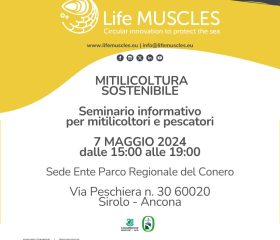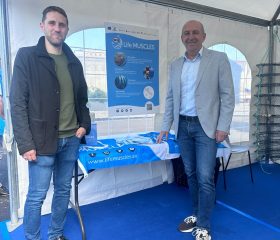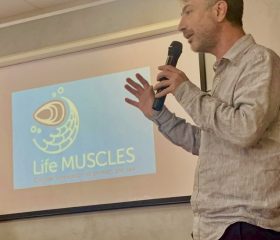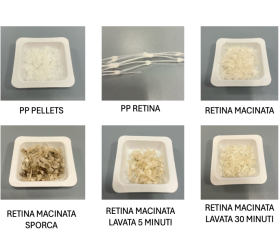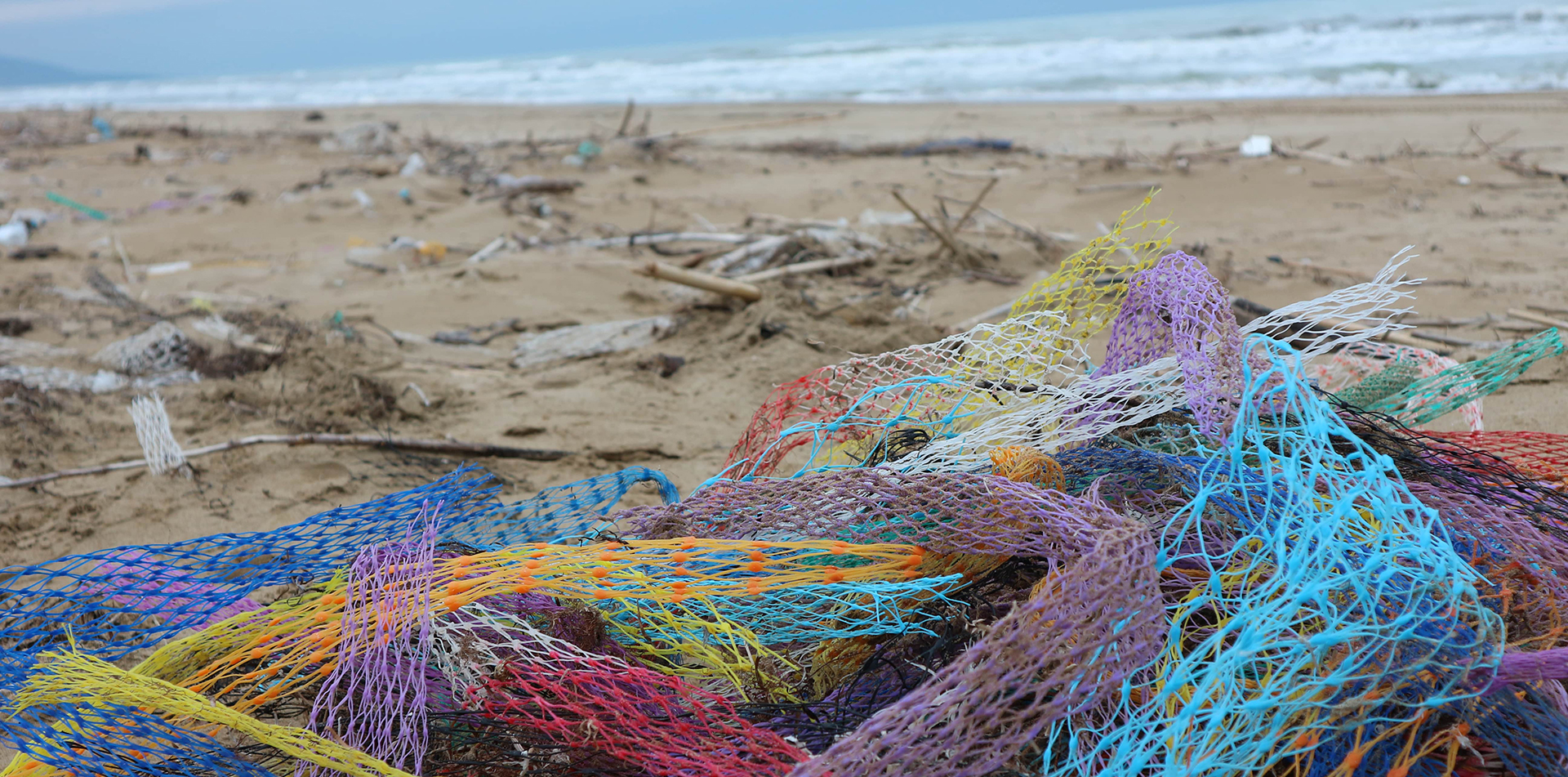
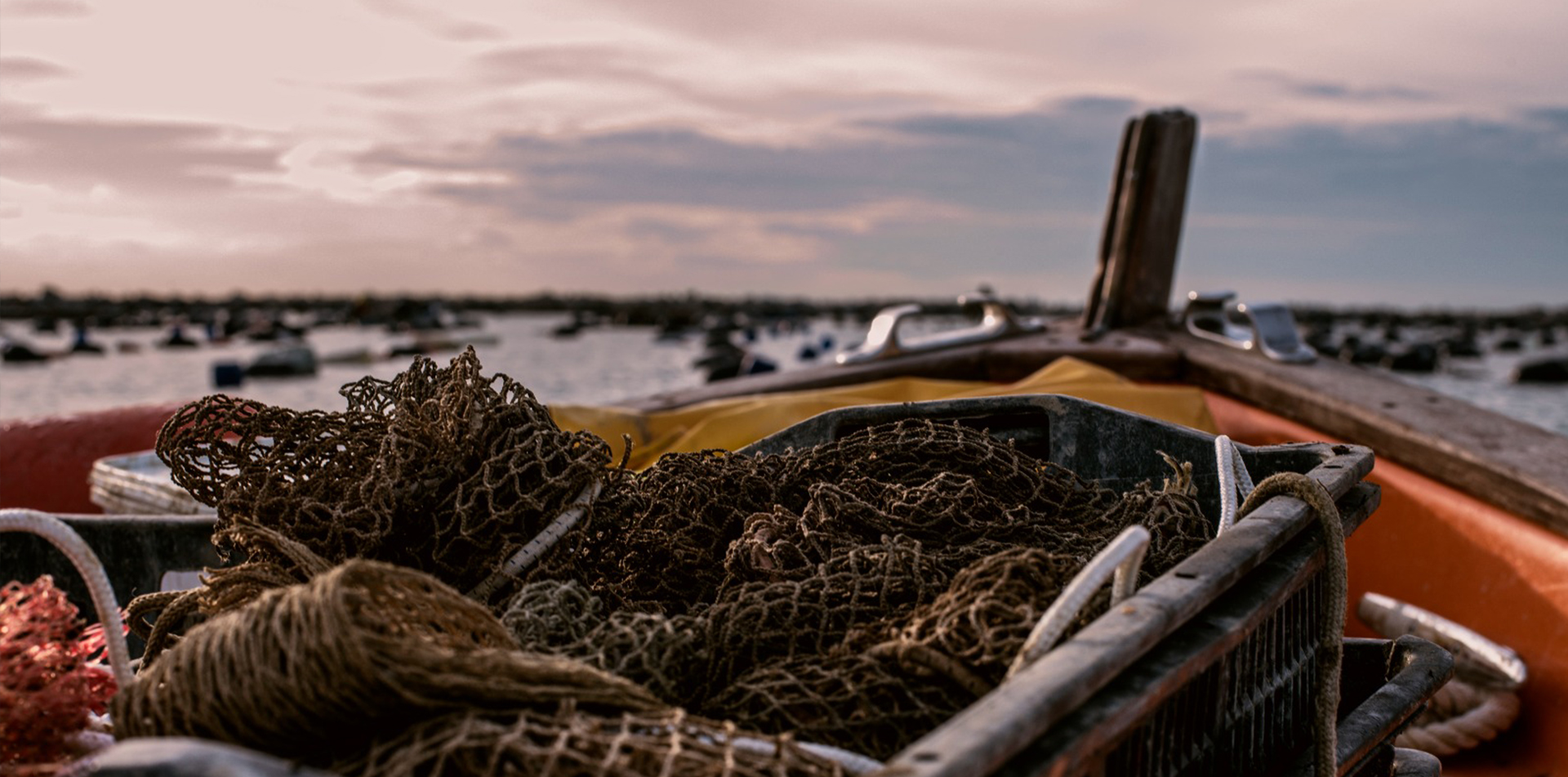
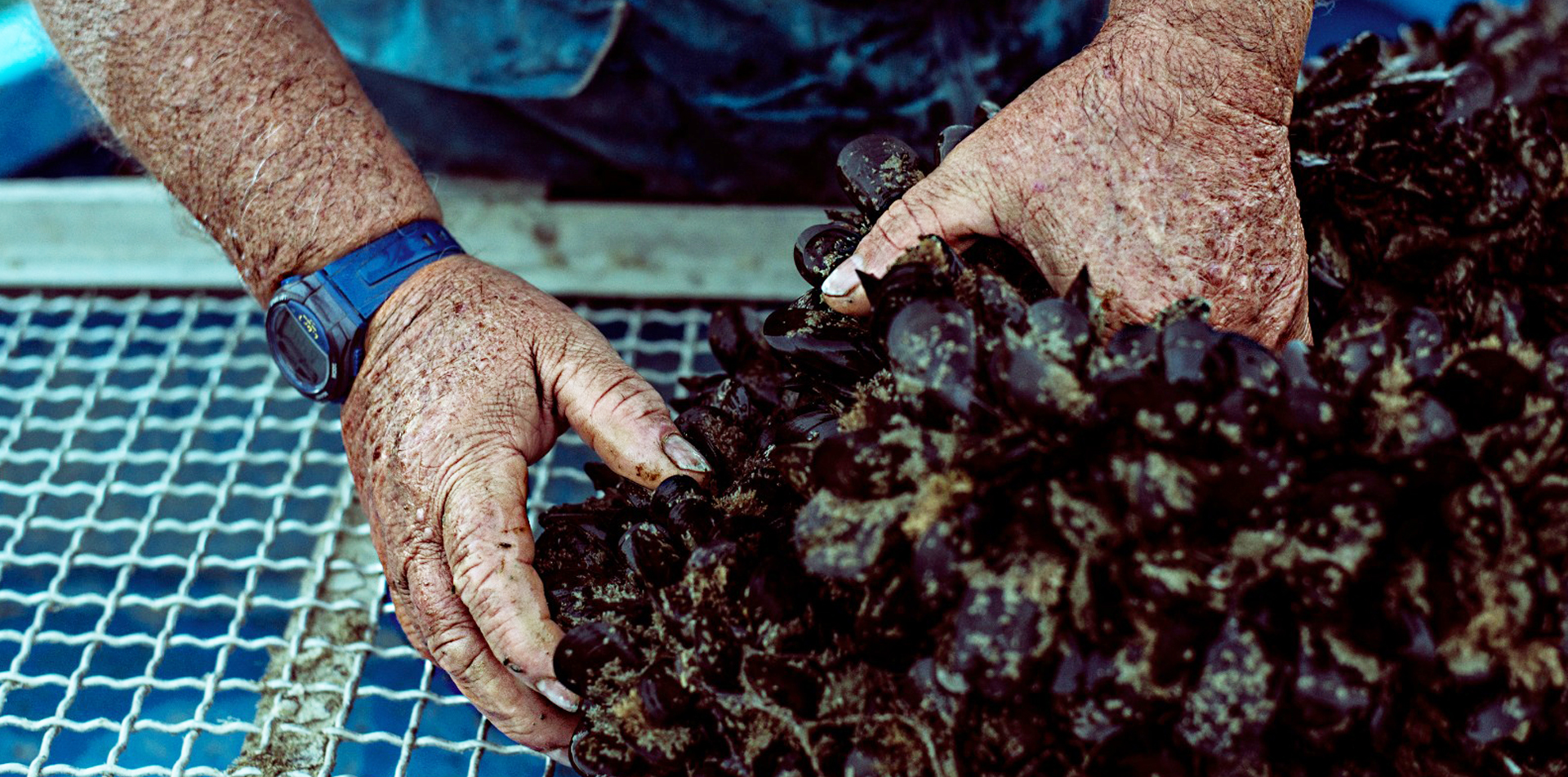
THE ENVIRONMENTAL IMPACT OF MUSSEL FARMING
Aquaculture is the fastest growing food production sector, with an annual expansion rate of 8%. Every year in Italy they are sold over 70,000 tons of mussels and the dispersion of the plastic nets used for breeding is an increasingly evident problem: in fact they represent the 27% of waste found on European beaches. The goal of the MUSCLES project is to contribute to the reduction of the impact caused by dispersion in the marine environment of the retinas, promoting and creating a more sustainable value chain.
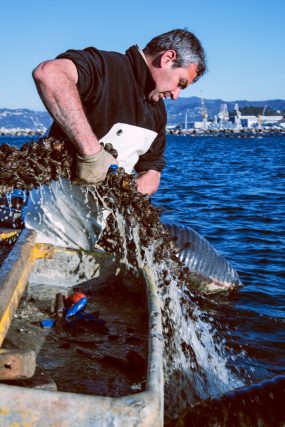
RECYCLING PLASTIC NETS
CIRCULAR CHAIN
In Northern Gargano, a mobile recycling plant for polypropylene nets currently used for mussel farming will be developed to limit their dispersion into the sea.
![]()
Find out more
REPLACEMENT WITH BIOPOLYMER NETS
SUSTAINABLE FARMING
In the area of La Spezia on the Tyrrhenian Sea, the PP socks will be replaced with those in BP, biodegradable, and recycling and composting tests will be carried out
![]()


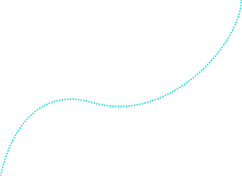
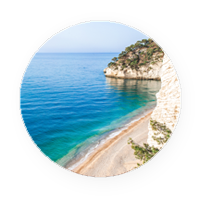



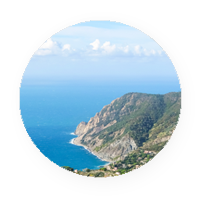
The LIFE Muscles Project
Circular innovation to protect the sea
Increase the recycling of networks
Implement the recycling process developed by Enea and AMA, in collaboration with Legambiente

Engage stakeholders
Promote the active participation of mussel farmers and distributors, making them aware of the data on the problem

Increase the use of biodegradable nets
By using the innovative mater-bi networks, there would be a decrease in network dispersion

Disseminate research data
Research must be a beacon for the development of sustainable solutions and alternative materials

Raise consumer awareness
Using a label that indicates the purchase of mussels from sustainable farming, promoting circular innovation
-
The second Life MUSCLES seminar for mussel farmers and fishermen will be held on 7 May in Sirolo (AN).
Action D.2.1 information event for professionals
-
Two appointments with mussel farmers for Sea Day in La Spezia
Dissemination towards the local community and tourists and networking with projects that have the same mission
-
LIFE is a program introduced by the European Union in 1992, with which projects on environmental issues proposed by member countries are co-financed. The aim is to provide specific support for the development and implementation of Community environmental policy and legislation, in particular to pursue the objectives of the Community Environmental Action Programme, with over €280 million of EU funding for environment, nature and climate action projects.


